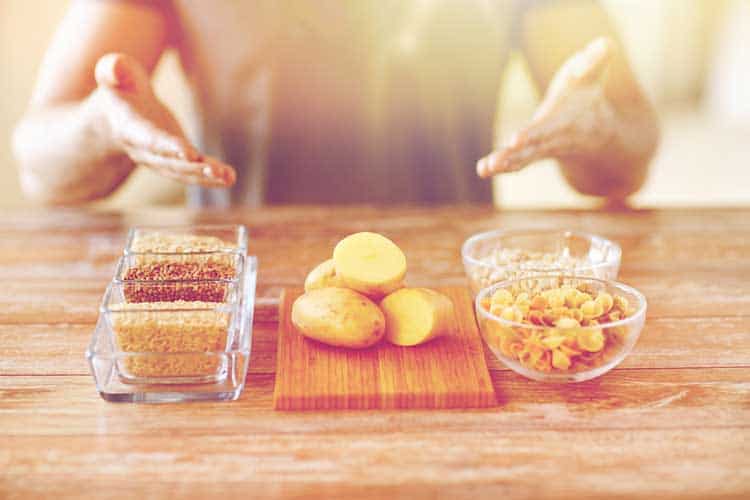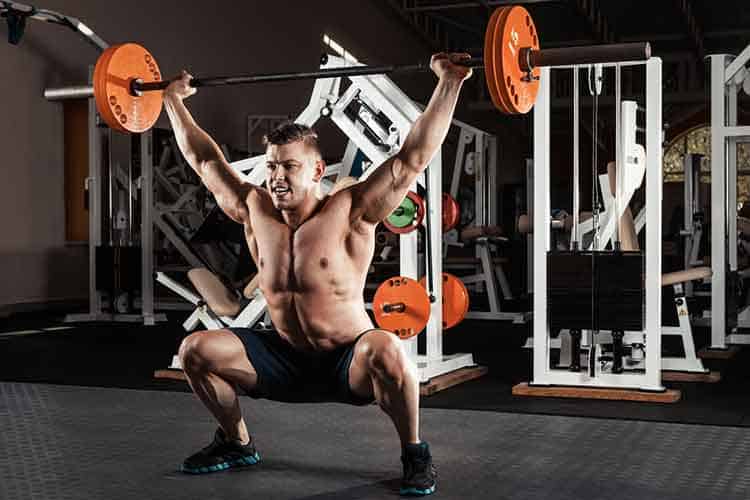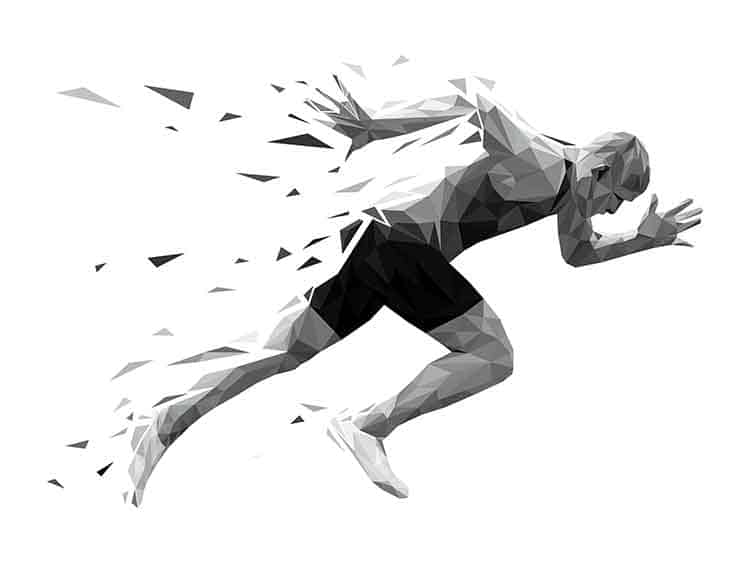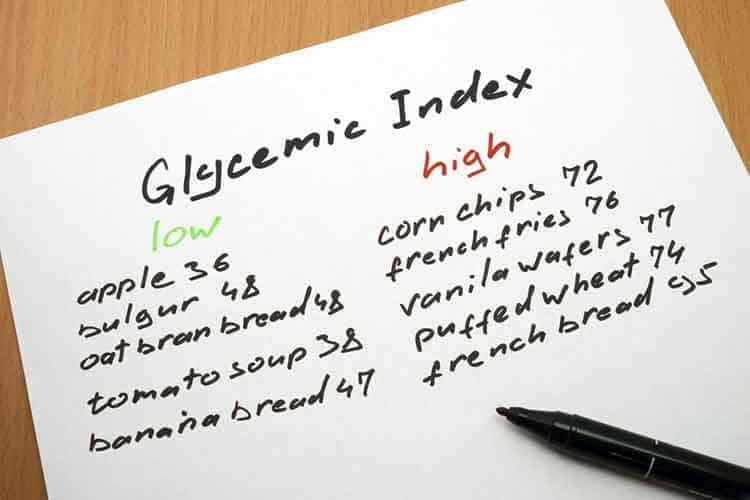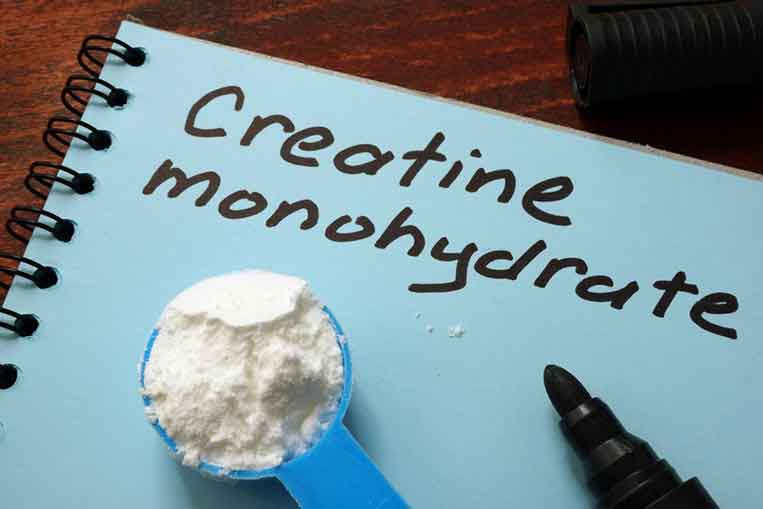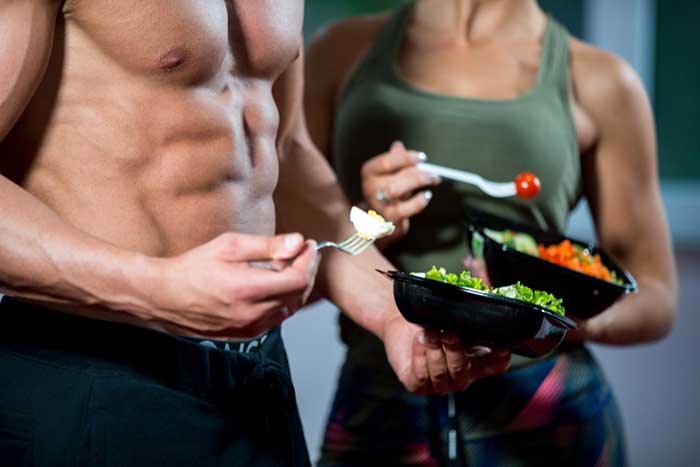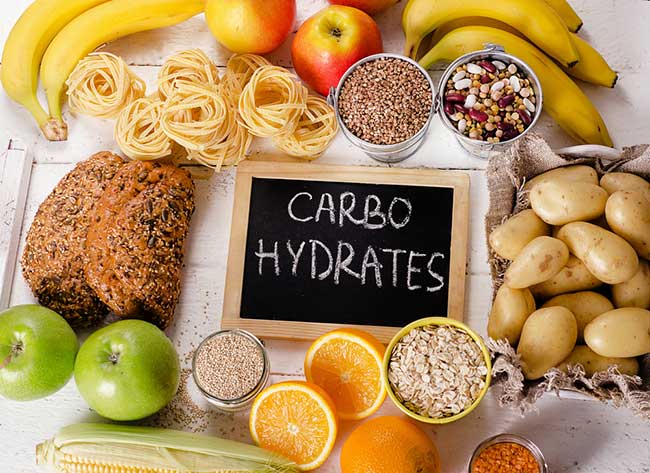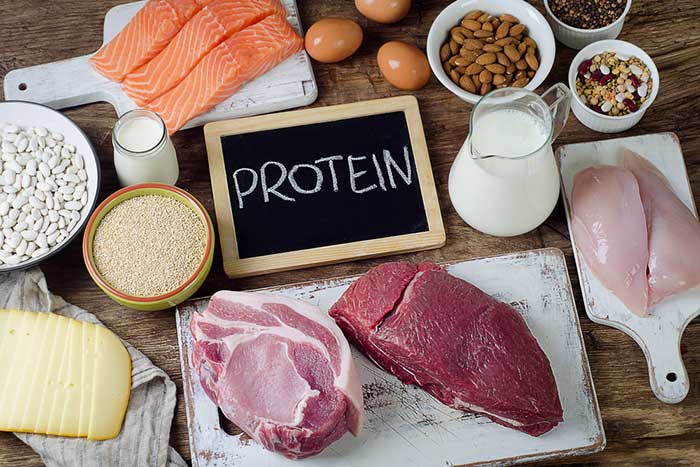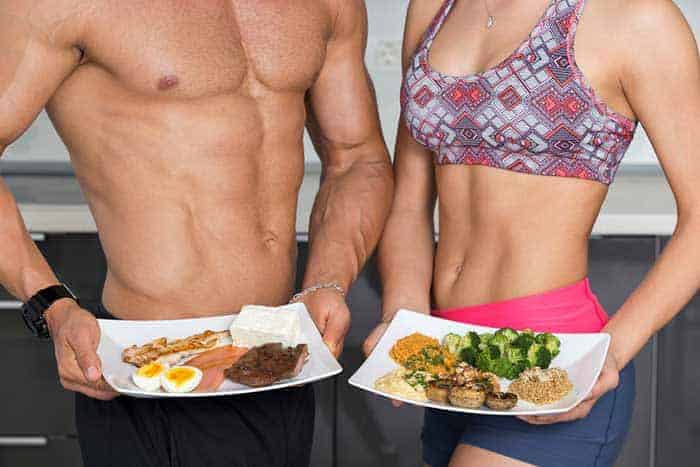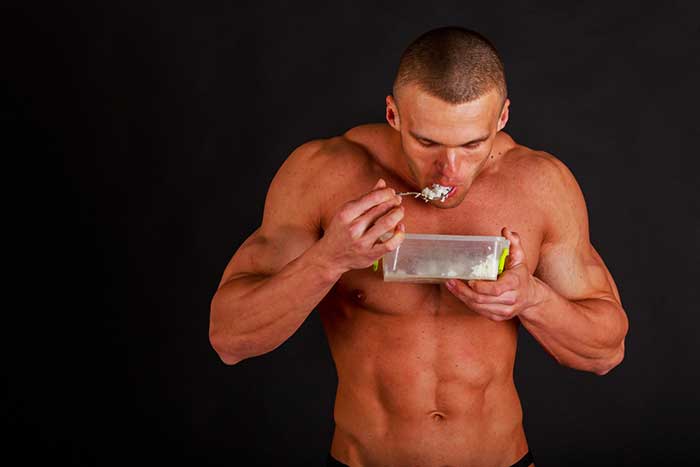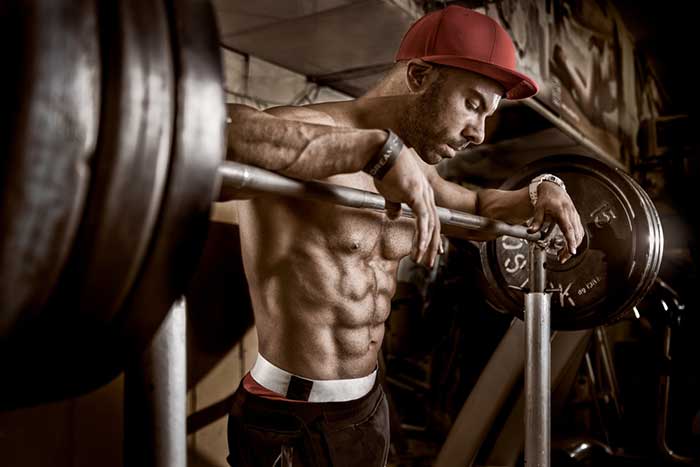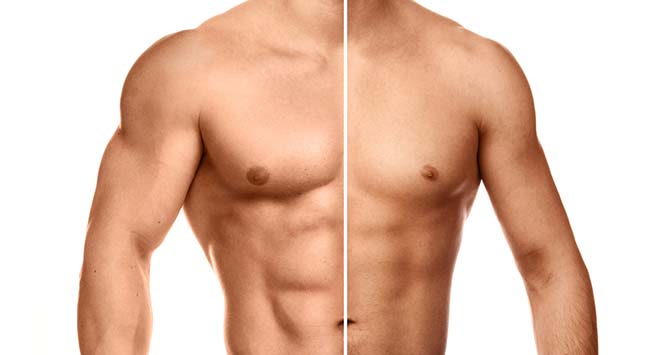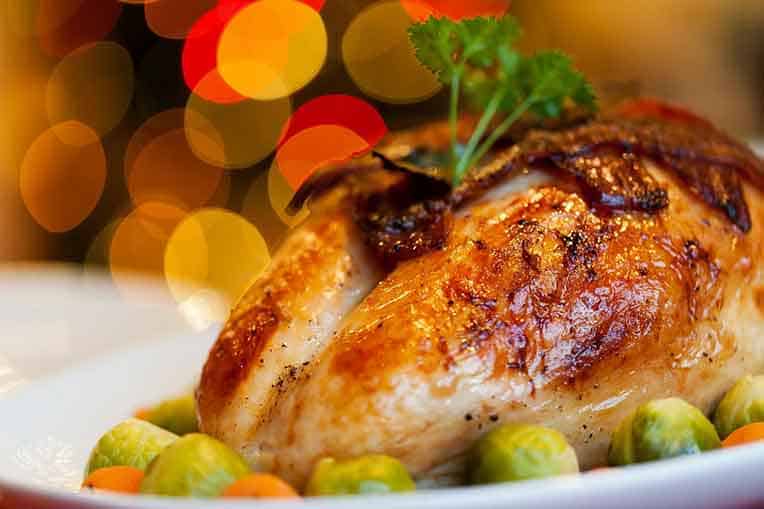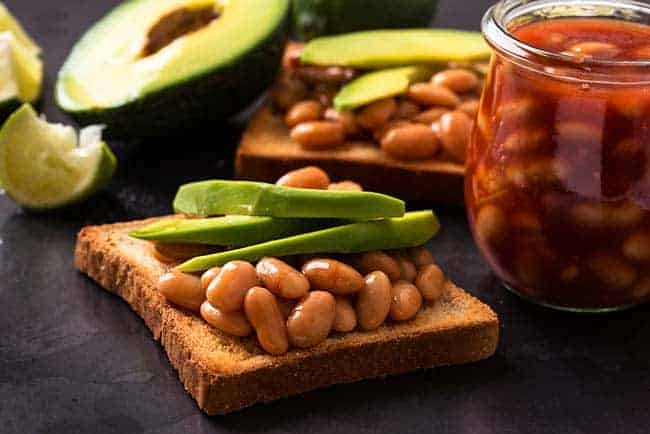The most effective way to increase testosterone levels is through food. Here is a list of foods that are easily acquired that can added to your pre or post workout meal to boost flagging T levels.
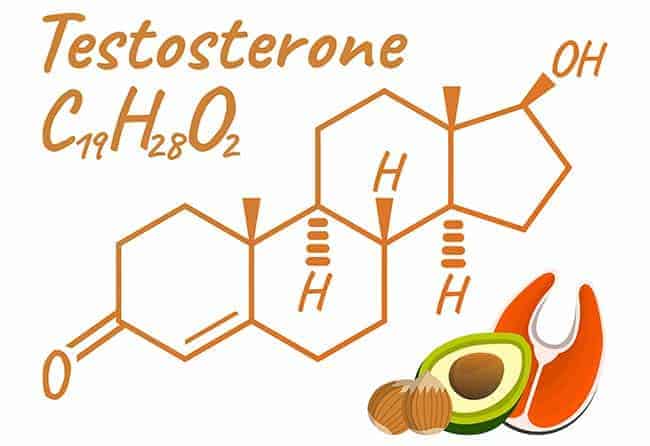
What Food Increases Testosterone Levels
You could opt to go for a supplement that increases testosterone levels, or you could do it with food. Then again, you could go the whole hog and try a combination of the two. The way you choose to boost your testosterone is entirely up to you.
Choosing a testosterone boosting supplement is easy. The label on the bottle will let you know in no uncertain terms what the supplement is meant to do.
Knowing what food increases testosterone levels is much harder. If it comes in a can or a packet, the nutritional information will let you know some of the main nutrients the food provides. If you are buying it from a fruit and veg store, a fishmonger, a butcher, or some other place that sells fresh food, there will be no information at all.
Even when the label does tell you a food is high in protein or contains X amount of zinc or Vitamin B that won’t help a lot. Try looking for canned goods sold with the promise of boosted testosterone levels and you won’t have much luck. That’s not what the average person is looking for when they head to the shops for a can of beans.
As bodybuilders, we have more exacting needs when it comes to choosing the way we get our nutrition. We do look at things like the protein and fat content and if a food is going to boost our testosterone levels we want to know.
We also try to eat strategically. We choose our pre workout food and post workout food with specific goals in mind.
A lot of food has this ability. The list below shows some of the options available to us, but it’s best considered a starting point. When it comes to testosterone boosting food, when you look into it you could find you are spoiled for choice.
Must Read: Natural testosterone booster supplement – rediscover lost libido, gain muscle mass and restore the energy of your youth – read about Testo Prime
10 Testosterone Boosting Foods You Should Try
1. Oysters
Oysters are famous for their alleged abilities as an aphrodisiac. This being the case, perhaps it is not so surprising that oyster consumption also boosts production of the male sex hormone. But why can this be?
Although there could also be other unknown factors involved, oysters are known to be incredibly good sources of zinc. In fact, a single serving of six oysters can provide 32 mg of zinc. That’s close to a third of the RDA for a man.
The relationship between zinc and testosterone production is well known. It’s also well studied. After six months of supplementing with zinc, the elderly men who took part in one clinical trial almost doubled their levels of serum testosterone.
The same research team also conducted a 20-week study on younger men. This time they restricted the amount of zinc the men consumed each day. The restriction caused a significant decrease in serum testosterone concentrations.
Eating oysters may be an expensive way to support increases in your testosterone levels, but it should work. [SOURCE

2. Ginseng
Ginseng is an adaptogen herb that has a long history of use in traditional Chinese medicine. It’s used for promoting good health as well as treating a variety of ailments. Ginseng also has a longstanding reputation as an aphrodisiac.
Research suggests consuming ginseng may produce respectable increases in testosterone. Some scientists have speculated the adaptogenic properties of ginseng may be due to the way it affects the hypothalamic–pituitary–adrenal axis and elevates plasma corticotropin and corticosteroids levels. Who cares about all the geek talk? The important thing to know is ginseng appears to be good stuff. [SOURCE 1, SOURCE 2]
The problem is, fresh ginseng can be hard to obtain. So although it’s a food that can produce good increases in testosterone you may have to compromise.
If you are lucky enough to live near health food shop that sells ginseng leaves, you could try adding some leaves to a salad. Alternatively, you could try drinking ginseng tea. As a final resort, you may have to make do with some ginseng tablets.
3. Beefsteak
Beef is also a food that increases testosterone levels, but if you decide to go for a steak try to keep it lean. The fat beef provides is the saturated kind, so it’s not good for your waistline or your health.
So, what is it about beef that makes it such a good food for producing increases in testosterone levels? As with many other testosterone boosting foods, it all boils down to the amount of zinc it contains. A three-ounce steak (braised) provides around 7 mg.
Let’s not forget steak is a good source of protein as well. When you eat a serving of steak, all that zinc helps push up your testosterone levels, creating a superior anabolic environment. Then the protein the steak provides gives the muscles the amino acids they need for muscle building and bulking up.
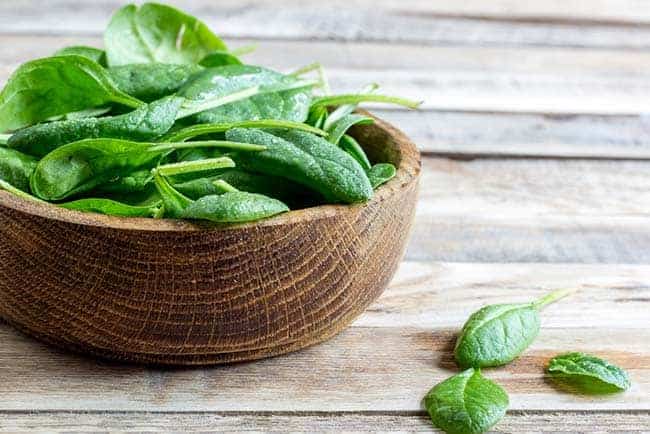
4. Spinach
Ugg-ug-ug-ug… It seems Popeye was onto something when he used spinach to get his muscles pumped up and ready to go.
Does spinach boost testosterone? You betcha. Although it’s not a particularly potent source, it contains zinc. It’s got some magnesium too and that’s a testosterone booster as well.
However, don’t go selling it short, spinach does a lot more for your muscles than you may think. For one thing, it’s a good source of nitrates. This allows it to boost nitric oxide and improve blood flow to the muscles.
In addition to all of the other good things spinach does for your muscles, it provides a powerful plant steroid called phytoecdysteroids. It’s good for muscle growth but does not present the side effects anabolic steroids do. [1]
So, if you want to take a leaf out of Popeye’s book and be strong to the finish, maybe you should start eating your spinach.
5. Tuna
If you want to see some respectable increases in your testosterone levels, tuna is an ideal food to help. It’s a good source of Vitamin D. Even if you do things the quickest and easiest way and chow down on tuna from a can, three ounces will provide around 50 percent of the RDA.
Research shows supplementing with Vitamin D can have a very beneficial effect on testosterone levels.
Forget the pills though. Tuna is better because it’s a good source of protein too.
To help put things into perspective, many people are Vitamin D deficient. For starters, it’s a fat-soluble vitamin. That means your body can’t store it like it does with water-soluble vitamins. You need to top-up on Vitamin D often, but a lot of people’s diets don’t provide enough.
Your body can make it’s own Vitamin D. All you need to do to make it happen is get some sunshine on your skin. Cloudy days can really screw that up. On sunny days, sunscreen can ruin things as well and most people use it these days. If you are Vitamin D deficient Tuna can help set things straight.
6. Ginger
Whether you want to be a king in the gym or a bedroom ninja, ginger will see you right. People have been taking advantage of its many medicinal properties for centuries. So if you thought it only had value in the kitchen, shame on you.
Research shows ginger enhances testosterone production and works particularly well in conditions of oxidative stress. The only downside is, researchers are still trying to figure out how it works. [2]
If you are looking for a quick way to spice up your life with a little ginger, the easiest thing may be to drink ginger tea. Ginger cake will do it too, but it’s not the best idea. Apart from the increases in testosterone levels, that sort of food may cause increases in waist circumference too.
7. Pineapple
Believe it or not, pineapple is also a food that increases testosterone levels. Its succulent yellow flesh provides an enzyme called bromelain that’s very good for boosting testosterone in a natural way.
Bromelain is present in many other fruits as well including bananas and avocados, but pineapples are a particularly good source.
As you may or may not be aware, when you exercise hard it brings testosterone levels down. For this reason, when researchers at the University of Tasmania wanted to explore the way bromelain effects testosterone their study group consisted of 15 trained cyclists. All of them had to cycle 100 km per day.
The researchers gave some of the cyclists daily does of bromelain and the rest got a placebo. After six days of this treatment, the placebo group showed a significant drop in testosterone. The drop was less pronounced in the bromelain group. This suggests the enzyme was boosting testosterone production.
Not surprisingly, the members of the bromelain group reported less feelings of fatigue
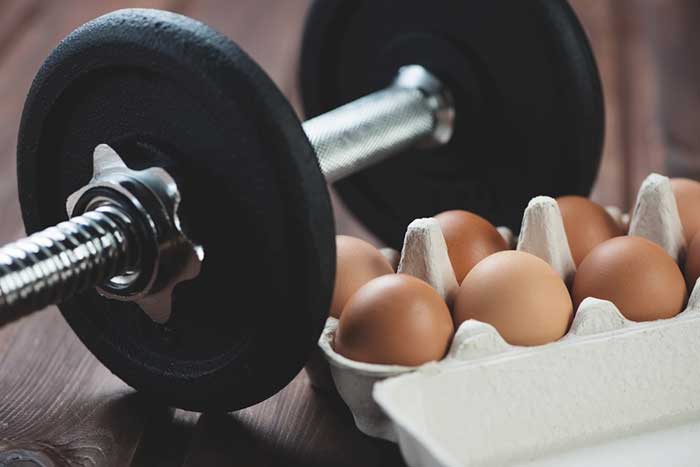
8. Eggs
On a serious quest to find food that increases testosterone but want to do it on the cheap? No worries. Shell out on a few boxes of eggs. They are cheap and nutritious and the yolk delivers a helping of that “sunshine vitamin”, Vitamin D.
Some bodybuilders say four eggs a day works best, others say they get good results with three. However, the way this cheap and versatile food increases testosterone levels may not just be down to Vitamin D.
As you are no doubt aware, eggs also contain cholesterol. Okay, cholesterol has a bad rep, but the truth is your body needs it to complete a number of biological processes. One of them is making Vitamin D when the sunlight hits your skin. Additionally, your body needs cholesterol to manufacture testosterone and other important hormones. [3]
Obviously, it may not be smart to start eating eggs day in and day out. However, nor is there a need to be chicken about taking advantage of this highly nutritious food. Eating a few extra eggs in moderation could do wonders for your testosterone levels. Eggs are also an excellent source of protein and that’s good for making your muscles grow. You can only take so much protein powder
9. Mung Beans
Mung beans are yet another food that increases testosterone levels. These little, green nutritional wonders are also a very good option for vegans and vegetarians.
Apart from being a good source of the testosterone boosting minerals zinc and magnesium, mung beans also provide many other important vitamins and minerals. They are high in protein as well, so they are a good muscle-building food.
Need a further reason to add some mung beans to your diet? Here’s one: they are a good source of antioxidants. That means they can help rid your body of free radical toxins and protect you from disease.
If you are new to mung beans, the other thing to know is there are two types you can buy—sprouted and unsprouted. I suggest you go for the sprouted type.
Unsprouted mung beans contain higher levels of phytic acid. It’s an anti-nutrient. That means it reduces the absorption of minerals, including the zinc and magnesium you want.
Apart from containing less phytic acid, sprouted mung beans provide more vitamins and amino acids than unsprouted ones do and are also lower in calories. [4]
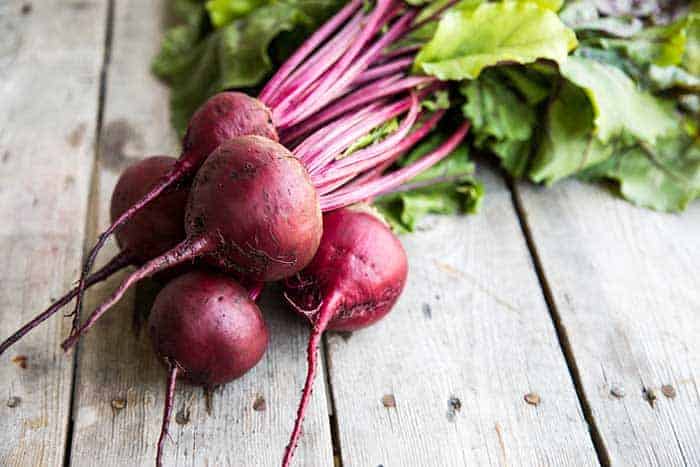
10. Beetroot
If you already have a knowledge of bodybuilding nutrition, you will probably be aware beetroot boosts nitric oxide. In so doing, it improves blood flow to the muscles helping you to train longer and heal faster. Additionally, it can help you enjoy a better pump.
However, beetroot is doubly good for your muscles because it’s also a food that increases your testosterone levels. Not many people know that, but it’s true.
Beetroot’s power as an NO booster is due to its high nitrate content. Its ability to boost testosterone is due to its ability to provide boron.
Apart from boosting testosterone, boron does a lot of other good things for the body. For one thing, it helps give you strong bones by aiding the absorption of magnesium. It’s also known to be good for increasing levels of Vitamin D.

